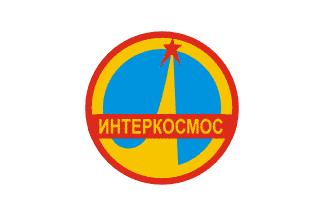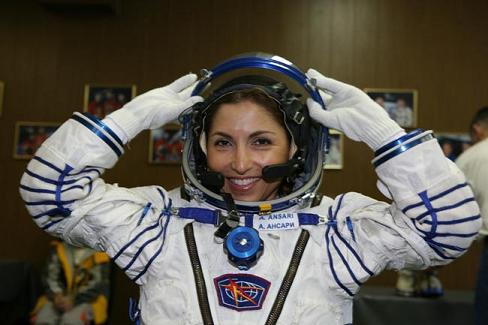A historical review of countries that sent people into space, disputes that arose, prestige and above all a lot of ego

With the launch of the Sputnik satellite by the Soviet Union, the world entered into a secret competition to conquer space. The great powers competed with each other for almost everything possible: first the question was asked which country would be the first to send the first man into space (Yogi Gagarin, 1961). The next challenge was to launch a number of people into space, the Russians won here as well (Veskhod-1, 1964). The Russians also performed the first spacewalk (Veskhod-2, 1965). But the Americans overtook them in a round when two manned spacecraft docked side by side (Jamani-8 and Agena, 1966). As more experience was gained, the records went further. The Americans were the first to orbit the moon (Apollo-8, 1968). Later they overtook the Russians and landed on it (Apollo-11, 1969). The Russians did not remain indifferent and decided to build a manned space station (Saliot-1, 1971).
This pissing contest is more suitable for children than for space powers, but history proves that ego plays an important role and the competition will never end - every time one side managed to set a new record, the other side runs to the next challenge. Nowadays we are already talking about Mars.
Not just a game for adults

It turns out that competitiveness is not only the lot of the big players, other countries that don't have tools that allow launching people into space, also took part in the game.
Today, only 3 countries managed to launch a man into space on their own - Russia (1961), USA (1961) and China (2003). At the same time, citizens from 39 different countries have been in space as part of various collaborations with the Russian and American space agencies. The Soviet Union was the first to launch space pilots from other countries as part of the "Intercosmos Program" which began in 1978. The Americans only started adding foreign astronauts from 1983.
Over the years, the Russians and the Americans shared more and more countries in their space programs. The cooperation included several aspects: knowledge sharing, research and development, participation in tenders and, of course, the crown jewel - joint flights into space.
As part of the "Intercosmos Program" (1978-1988), 14 foreign cosmonauts from 13 different countries were launched (Czechoslovakia, Poland, East Germany, Bulgaria, Hungary, Vietnam, Cuba, Mongolia, Romania, France, India, Syria and Afghanistan). At first these were allies of the USSR from the Warsaw Pact, but later also friendly countries such as France and India.
Countries that have sent people into space
- Soviet Union(Yuri Gagarin) – April 12, 1961.
- United States(Alan Shepherd) – May 5, 1961.
- Czechoslovakia(Vladimir Ramek) – March 2, 1978. (son of a Slovak father and a Czech mother)
- פולין(Morislav Hermslavsky) – June 27, 1978.
- East Germany(Sigmund Jahn) – August 26, 1978. (The first German in space)
- Bulgaria(Georgi Ivanov) – April 10, 1979.
- Hungary(Bertel Perks) – May 26, 1980.
- Vietnam(Pam Tuan) – July 23, 1980.
- Cuba(Arnaldo Tamayo Mendez) – September 18, 1980.
- Mongolia(Jogdardemidein Georgache) – March 22, 1981.
- Rumania(Dumitro Proronoi) – May 14, 1981.
- France(Jean-Loup Cartain) – July 24, 1982.
- West Germany(Ulf Marbold) – November 28, 1983. (The second German in space)
- הודו(Rakesh Sarma) – April 3, 1984.
- קנדה(Mark Graneau) – October 5, 1984.
- Saudi Arabia(Salman Al-Saud) – June 17, 1985.
- Netherlands(Wobo Occles) – October 30, 1985.
- מקסיקו(Rudolph Neri Walla) – November 26, 1985.
- Syria(Mohamed Faris) – July 22, 1987.
- Afghanistan(Abdul Ehad Muhammad) – August 29, 1988.
- Japan (Toyohiro Akihama) – December 2, 1990.
- בריטניה(Helen Sherman) – May 18, 1991.
- Austria(Franz Weibok) – October 2, 1991.
- Russian Federation(Alexander Karli, Alexander Victorino) – March 17, 1992. (The first ones after the dissolution of the Soviet Union)
- Belgium(Dirk Primeaut) – March 24, 1992.
- Italy(Franco Malarbe) – July 31, 1992.
- Switzerland(Claude Nicollier) – July 31, 1992.
- Kazakhstan(Talget Mosayev) – July 1, 1994.
- אוקראינה(Leonid Kadaniuk) – November 19, 1997.
- Spain(Pedro Dugui) – October 29, 1998.
- סלובקיה(Ivan Bela) – February 20, 1999. (The second Slovak in space)
- South Africa(Mark Shuttleworth) – April 25, 2002.
- Israel(Ilan Ramon) – January 16, 2003.
- סין(Yang Levi) – October 15, 2003.
- ברזיל(Marcus Pontes) – March 30, 2006.
- Iran(Anoush Ansari) – September 18, 2006. (Space tourist, American citizen with Iranian citizenship)
- Sweden(Krister Vogelsang) – December 10, 2006.
- Malaysia(Sheik Mozafar Shukar) – October 10, 2007.
- South Korea(Yi So Yeon) – April 8, 2008. (The first Koran in space)
The primary versus the qualitative
Although the space race ended in the sixties, testosterone continues to celebrate. The competitiveness causes a lot of headaches and significant expenses on the part of all involved, but the achievement gives a lot of prestige.
For example, Syria is proud of the fact that it sent a man into space long before Israel (and Saudi Arabia as well), at the same time the primacy test hides the fact that from a practical point of view Israel has more extensive knowledge in the field of space.
The geopolitical disputes
One of the funniest disputes is between the Czech Republic and Slovakia regarding the nationality of Vladimir Ramek (Czechoslovakia's first cosmonaut). The subject is problematic since he is the son of a Slovak father and a Czech mother. After Czechoslovakia broke up into the Czech Republic and Slovakia, both countries wanted to claim primacy in space. Finally, the achievement was attributed to Czechoslovakia directly, and to both countries indirectly.
The opposite case is the unification of Germany. In the past, East Germany and West Germany competed with each other since they were two different political entities. East Germany sent Sigmund Jahn into space (1978), but in West Germany, Olaf Marbold was the first astronaut (1983). After the reunification of Germany, the Germans saw Sigmund Jahn as the first German in space and there was a fear that Olaf Marbold's achievement would disappear into the pages of history since he was only the "second" German in space. Today, Sigmund Jahn's achievement is attributed to East Germany, while Olaf Marbold's achievement to the West, since (unified) Germany did not exist at that time. Definitely a creative solution.
A little further in the timeline we come to the dissolution of the Soviet Union (1991), on whose remains the Russian Federation was established. A new country. New rules. new administration. and desire to create new records. Similar to the case of Czechoslovakia, a situation arose in which a new country arose, albeit much smaller, but it is still a country with independent launch capabilities into space. The question that arose is which of the former republics can attribute the achievements in space to themselves? Simple logic says that Russia is the natural successor of the Soviet Union, but not everyone will agree with this statement. If Czechoslovakia was presented separately from Slovakia, and West Germany was presented separately from East Germany, then why doesn't the Russian Federation deserve its own place? And so when the Soyuz TM-14 mission was launched in 1991, Alexander Karli and Alexander Victorino became the first cosmonauts of the Russian Federation. Strange, but I'm sure that in the long term it will reflect the geopolitical changes.
Confused? It's nothing more…

Iran's position in the list of countries that have sent a man into space is the most problematic. While all the countries on the list (until Iran) were active partners in the launching of their space pilots, in the case of Iran the country did not take part in the matter at all. Anushesh Ansari is a space tourist who paid out of pocket for the pleasure, and she is American after all. So how is it that it is included in the list of countries that have sent a man into space? that's how it is. Her Iranian origin made her very popular among her people and any Iranian will say that this title belongs to Ansari.
What does the future hold? I don't know, but I already recognize the dispute that will come between North and South Korea, and in the future also the united Korea. Another hypothetical question, what will happen if a country that sent a man into space conquers/merges with another country that sent a man into space, who will win first?

2 תגובות
It upsets me that in the first decade there was such significant progress and yet since then we have done nothing. So it is true that we sent robots, but who needs a robot, there are enough crazy people who are ready to fly into space and perform the necessary tasks.
If I had lived in the sixties I would have thought that by the year 2010 we would settle Mars in some interesting research station. Really unfortunate
If only they would join forces and understand that in outer space the borders on Earth have no meaning - we could already establish a permanent colony in a black hole.
It's a shame that the competition follows prestige and who is first more than an intelligent division of the space missions and a focus on the conquest and real understanding of the space around us.